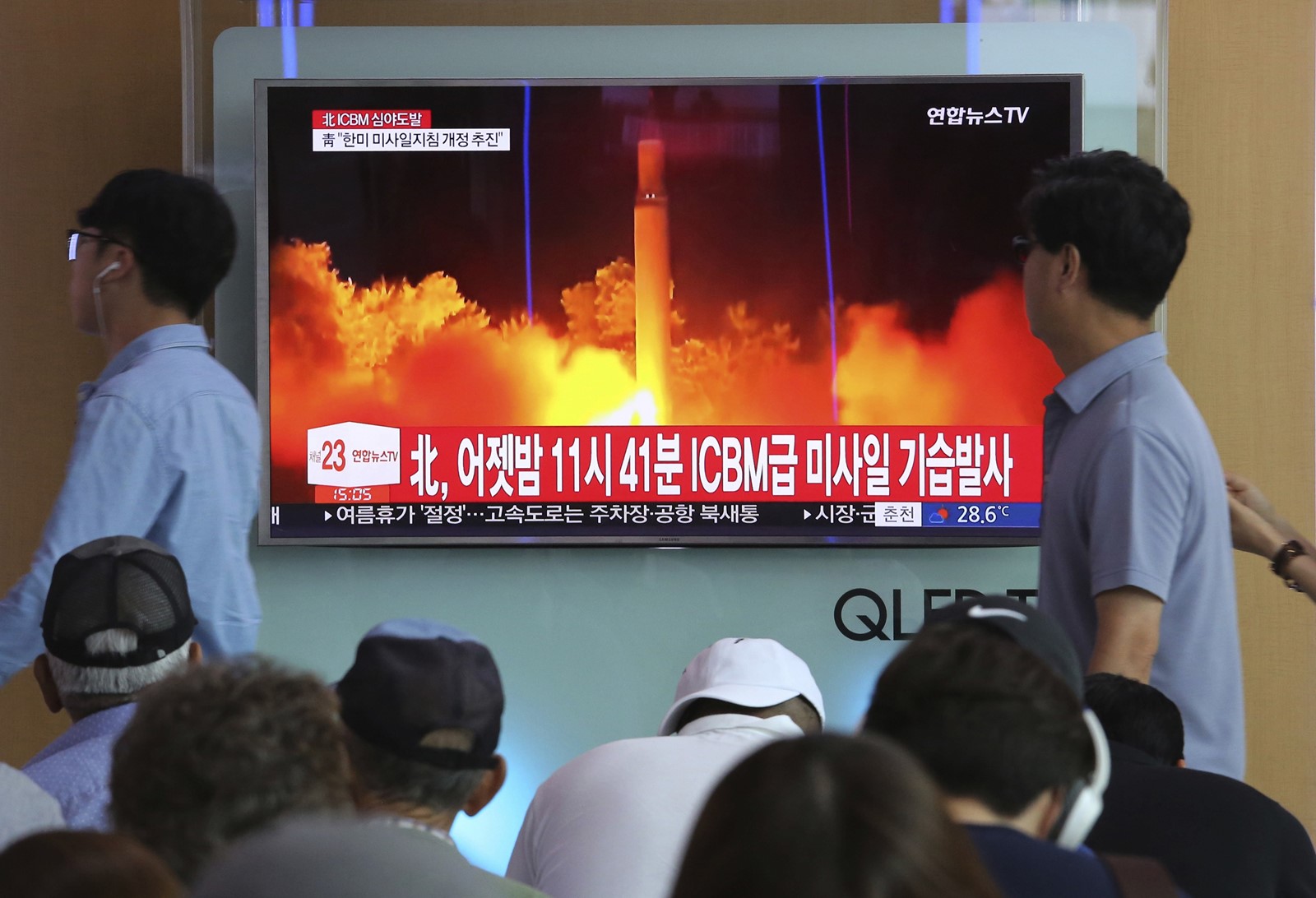‘Denuclearization’ lost in translation
Trump and Kim want it, but differ on what it means

But the two leaders fundamentally disagree about what that looks like.
The dispute over the shape, scope and speed of a potential disarmament has stymied international efforts to halt or roll back North Korea’s nuclear weapons program for three decades. It arguably poses the biggest obstacle to a successful summit now that the historic meeting is back on track for June 12.
Reconciling or finessing that gap — and determining what the secretive police state would get in return for handing over or dismantling its devastating nuclear arsenal — could make the difference between a deal or no deal after the formal haggling starts.
“The common mistake is to assume when the North Koreans talk about denuclearization of the Korean Peninsula, they’re talking about giving up all their weapons,” said Victor Cha, who headed Asian affairs in the National Security Council under President George W. Bush and who took part in nuclear talks with North Korea at the time.
“It’s not really the way we look at it, which is ‘Crate it up and take it out,” said Cha, who now heads the Korea program at the nonpartisan Center for Strategic and International Studies.
Rather, he said, North Koreans view denuclearization as a long-term aspiration, the way Americans talk of a future utopia when nuclear weapons can be abolished from the globe. North Korea has a long list of other grievances, and could demand the removal of U.S. troops, or even the U.S. nuclear umbrella, from South Korea.
“It’s an endless list,” said Michael Green, another veteran of Bush-era negotiations with North Korea. “They will keep adding to the list of things we have to do in order for them to denuclearize until the cows come home.”
Most experts say Pyongyang wants to be recognized as a full-fledged nuclear power with the weapons it has, but with global obligations, much as then-isolated Communist China’s nuclear arms program ultimately was accepted after President Nixon’s historic visit to Beijing in 1972.
Trump has signaled that he won’t offer a U.S. financial aid package, though he has suggested he would solicit Asian allies to do so.
Many former U.S. negotiators with North Korea are skeptical of how much its leaders will relinquish, and whether they would allow the intrusive inspections needed to ensure the program isn’t secretly restarting — as North Korea has done in the past.
The Trump administration has not made clear if it will seek curbs on Pyongyang’s ballistic missiles — or its extensive chemical, biological and cyberwarfare capabilities, demands that would complicate a potential pact.
Behind the scenes, U.S. officials have sought to narrow their differences with Pyongyang in a rush of advance planning and talks.
Most nuclear experts discount the idea of an immediate and complete denuclearization in North Korea given its vast program and deep distrust of Washington. They say full disarmament probably would require at least a decade and allow the two governments to build trust.
Kim wants multilateral security guarantees, in particular a declaration from the United States that it won’t seek to overthrow the Kim government, he said.
The isolated nation also likely wants cultural and economic exchanges — and eventually some form of diplomatic recognition, he said.
The U.S. side also has a list of demands, but it’s far from clear what it will get.
“I think what the U.S. will settle for is at least a big down payment up front, where North Korea dismantles something, gives up something, blows up something, or ships out ICBMs,” said Sue Mi Terry, a Korea expert, referring to the country’s intercontinental ballistic missiles.
Terry, a former CIA officer who worked under President Bush, said that could be followed by a more phased approach, like those attempted in past negotiations.


 PREVIOUS ARTICLE
PREVIOUS ARTICLE
